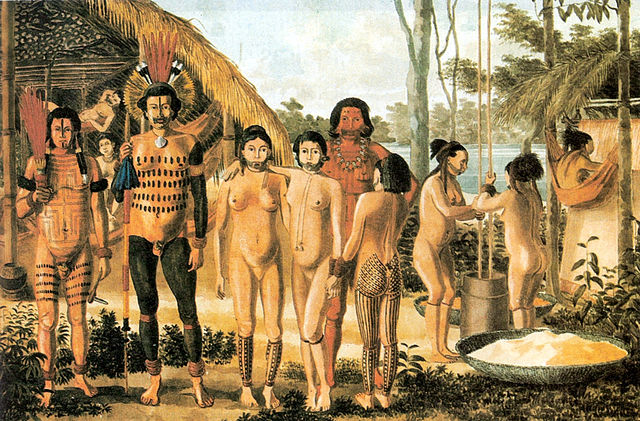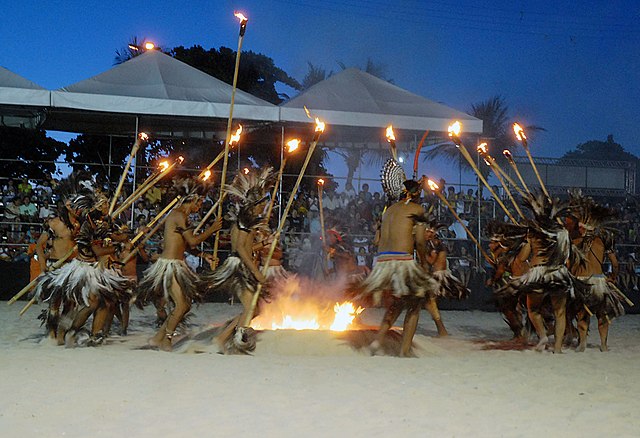Indigenous territory (Brazil)
In Brazil, an indigenous territory or indigenous land is an area inhabited and exclusively possessed by indigenous people. Article 231 of the Brazilian Constitution recognises the inalienable right of indigenous peoples to lands they "traditionally occupy" and automatically confers them permanent possession of these lands. In practice, however, a multi-stage demarcation process is required for a TI to gain full protection, and this has often entailed protracted legal battles. Even after demarcation, TIs are frequently subject to illegal invasions by settlers and mining and logging companies.
Current and proposed indigenous territories in Brazil
Kamaiurá village at Xingu Indigenous Park. Indigenous people playing the uruá flute.
Indigenous protesters from Vale do Javari
Illegal logging in indigenous territory in Brazil
Indigenous peoples in Brazil
Indigenous peoples once comprised an estimated 2,000 tribes and nations inhabiting what is now the country of Brazil, before European contact around 1500 AD.
Xingu, an Indigenous territory of Brazil
Apiacá people, painted by Hércules Florence, 1827
Indigenous girl of the Terena tribe
Terena people








